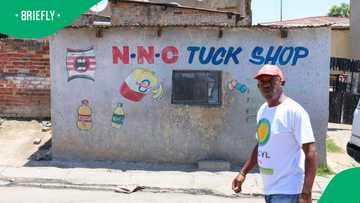Cape Town Remains the Strongest Major Metro Commercial Property Market
John is an economist who began his career at the National Treasury, contributing to South Africa’s first Medium Term Expenditure Framework. He later worked at Global Insight and Absa, where he led macroeconomic forecasting and was named Reuters Economist of the Year in 2004. In 2006, he joined FNB to focus on residential property, creating the FNB Property Barometer. Since 2018, he has led commercial property analysis at FNB, with a focus on consumer and retail sectors.
When it comes to broker perceptions of commercial property investor demand relative to supply across South Africa’s major metro regions, the City of Cape Town continues to be perceived as the strongest market, showing the most significant “under-supply” across all three major commercial property sectors. At the other end of the spectrum, Greater Johannesburg remains the weakest, with perceived oversupply in all three sectors.

Source: Original
The quarterly FNB Property Broker Survey interviews a sample of commercial property brokers across South Africa’s six major metro regions: City of Johannesburg and Ekurhuleni (collectively Greater Johannesburg), Tshwane, eThekwini, City of Cape Town, and Nelson Mandela Bay.
Included in the survey are questions on the perceived balance (or imbalance) between demand and supply for properties being transacted, broken down by metro. In this context, “market strength” refers to relatively high demand versus supply, and “market weakness” to the opposite.
Based on broker feedback on whether demand exceeds supply, supply exceeds demand, or the market is balanced, we compile a Demand-Supply Perception Index. This index ranges from +200 to -200, where:
PAY ATTENTION: stay informed and follow us on Google News!
- +200 means 100% of brokers perceive that demand far exceeds supply, and
- -200 means 100% perceive that supply far exceeds demand.
- A zero score implies a balanced market.
National Overview – Q2 2025
The Retail Property Market recorded the strongest sentiment with a score of +23, just slightly ahead of:
Industrial Property at +22.
The Office Market, however, remains under pressure, with a significantly negative score of -30.
In short, brokers perceive the Retail and Industrial Markets as moderately undersupplied, while the Office Market is oversupplied.

Read also
FlySafair defends salary offer as it meets with CCMA after pilots on strike demand 10.5% increase
But these national trends mask stark regional differences. Provincial Comparisons – Demand vs. Supply Perceptions
Cape Town Leads; Johannesburg Lags:
To smooth out volatility from smaller regional sample sizes, the data below uses a two-quarter average (H1 2025).
Cape Town stands out as the strongest metro across all three commercial property markets, while Greater Johannesburg is perceived as the weakest by a significant margin.
Office Property Market:
The national Office Market oversupply is largely driven by Gauteng metros:
- Cape Town scored +166.5, followed by
- Nelson Mandela Bay: +33
- eThekwini: +28
Gauteng metros show deep negativity:
- Tshwane: -51.5
- Greater Johannesburg: -163
This aligns with vacancy rate differences. According to Rode data, the three coastal metros have single-digit office vacancy rates:
- eThekwini: 8.7%
- Cape Town: 9.1%
- Nelson Mandela Bay: 7.6%
In contrast:
- Tshwane: 12.9%
- Johannesburg: 13.7%
Industrial Property Market:
Cape Town again leads, with +166.5. All metros recorded positive scores except Greater Johannesburg:
- eThekwini: +165.5
- Tshwane: +150.5
- Nelson Mandela Bay: +40.5
- Greater Johannesburg: -144.5
This is surprising, given Johannesburg's relatively low industrial vacancies and the fact that industrial property has been the best-performing sector nationally. The weakness may reflect long-term investor concerns about the region.
Cape Town again dominates:
- Cape Town: +178.5
- Tshwane: +122.5
- eThekwini: +56.5
- Nelson Mandela Bay: -29.5
- Greater Johannesburg: -196.5
Conclusion: Cape Town vs. Johannesburg – A Tale of Two Cities
The demand-supply perception indices show Cape Town as the clear national leader across all sectors, while Greater Johannesburg lags behind in every category.
Additional Survey Insights:
Further questions in the survey reinforce this contrast between Cape Town and Johannesburg. Broker Sentiment on Property Stock.
In Cape Town:
- 86% of brokers report a shortage of office property stock to list.
- 90% report a shortage in the industrial sector.
- 57% report a shortage in retail property stock.
- 0% report oversupply in office and industrial, and only 14% in retail.

Read also
"We knew Cape Town was taking it" Man reviews 5 most expensive restaurants in SA, stunning viewers
In contrast, Johannesburg:
- 0% report a shortage of office or retail stock.
- Only 21% report an industrial stock shortage.
- 38% report office oversupply.
- 12% report oversupply in industrial.
Economic & Political Uncertainty:
Brokers were also asked about economic or political concerns affecting market expectations.
In Cape Town:
- 0% mentioned uncertainty in office or retail.
- 10% mentioned it in industrial.
In Greater Johannesburg:
- 33% cited uncertainty in the office market.
- 25% in industrial.
- 40% in retail.
Why Cape Town Is Gaining Investor Confidence - Cape Town’s appeal has grown due to:
- In-migration of skilled professionals and affluent households (“semigration”).
- Business migration and expansion.
- Limited land supply (supporting values).
- Stronger local governance and infrastructure.
These factors appear to support long-term investor confidence—reflected in both the commercial and residential market data. Residential Market Performance Also Diverges

Source: Getty Images
According to Stats SA’s February House Price Indices:
- City of Cape Town: +7.6% year-on-year
- Western Cape: +8.5%
- City of Joburg: +2.9%
- Ekurhuleni: +3.4%
- Gauteng Province: +2.5%
Cumulative house price growth since Dec 2020:
- Cape Town: +23.7%
- Western Cape: +31.3%
- Joburg: +4.7%
- Ekurhuleni: +14.1%
- Gauteng Province: +9.3%
In summary, both the commercial and residential property markets show Cape Town outperforming Greater Johannesburg across almost all indicators, underscoring shifting investor sentiment and regional economic dynamics.
3 More stories about the property market
- Briefly News also reported that South Africans were unamused by the value of houses as they searched for property online. Most Mzansi people were baffled by the kind of underwhelming homes that were valued at R1 million.
- South Africans were thrilled to hear about how they could afford R3.1 million luxurious homes from a real estate agent.
- Mzansi was boggled by the rental prices of property in Cape Town after different people shared how much they pay monthly.
Disclaimer: The views and opinions expressed here are those of the author and do not necessarily reflect the official policy or position of Briefly News.
Source: Briefly News




